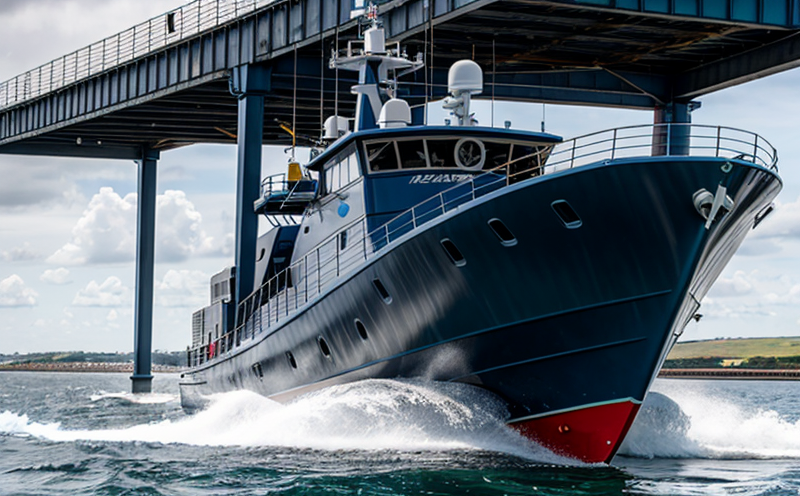IMO SEEMP (Ship Energy Efficiency Management Plan) Verification Testing
The International Maritime Organization’s (IMO) Ship Energy Efficiency Management Plan (SEEMP) is a regulatory framework aimed at enhancing the energy efficiency of ships, thereby reducing fuel consumption and greenhouse gas emissions. This service focuses on verifying compliance with SEEMP requirements through rigorous testing protocols tailored to marine engine and propulsion systems.
Our IMO SEEMP verification testing includes a comprehensive suite of procedures designed to ensure that ship operators meet international standards for energy management. This service is essential for quality managers, compliance officers, R&D engineers, and procurement teams responsible for ensuring their vessels are in full regulatory compliance.
The process begins with a detailed review of the vessel’s SEEMP documentation. Our team cross-references this against IMO guidelines to ensure all necessary measures are documented and implemented. Subsequent testing involves on-site inspections of critical components such as engines, propellers, and auxiliary systems. We use advanced instrumentation to measure fuel consumption rates under various operational conditions.
Testing also includes evaluating the effectiveness of onboard monitoring systems that track energy usage in real-time. This allows us to assess whether the vessel is adhering to its predefined targets for reducing fuel consumption and optimizing performance. Our reports provide detailed insights into areas where improvements can be made, along with recommendations based on best practices from leading maritime companies.
For a deeper understanding of how this service impacts your business or project, consider these real-world applications:
| Application | Description |
|---|---|
| Data Collection and Analysis | We gather comprehensive data on fuel consumption, speed, and other relevant parameters to create detailed reports that help identify inefficiencies. |
| Regulatory Compliance | Ensure your vessel meets all IMO SEEMP requirements through our expert verification testing services. |
| Sustainability Reporting | Generate accurate and reliable data for sustainability reports, which are increasingly important for stakeholders. |
| Performance Optimization | Determine the most effective ways to enhance engine efficiency and reduce fuel consumption without compromising performance. |
Industry Applications
The IMO SEEMP verification testing service is particularly valuable for ship owners, operators, and managers who are committed to sustainability and regulatory compliance. Here’s how this service can be applied across various sectors:
| Sector | Application |
|---|---|
| Cruise Lines | Evaluate the energy efficiency of cruise ships to minimize environmental impact and meet regulatory standards. |
| Ferry Services | Ensure that ferry operators comply with SEEMP regulations while maintaining operational efficiency. |
| Military Vessels | Verify the energy management plans for naval ships to optimize fuel usage and extend operational range. |
| Fishing Fleet Operators | Assess the energy efficiency of fishing vessels to reduce costs and environmental impact. |
Quality and Reliability Assurance
At our laboratory, we take pride in delivering high-quality, reliable test results that are crucial for maintaining compliance with IMO SEEMP requirements. Our state-of-the-art facilities and experienced technical staff ensure accuracy and consistency throughout the testing process.
- We employ cutting-edge instrumentation to measure fuel consumption precisely under various conditions.
- Our team of experts is well-versed in international standards such as ISO, ASTM, EN, and IEC guidelines relevant to marine engine and propulsion systems.
- We offer a wide range of services including initial audits, ongoing monitoring, and periodic verifications to ensure continuous compliance.
Environmental and Sustainability Contributions
The IMO SEEMP verification testing service plays a pivotal role in promoting environmental sustainability within the shipping industry. By reducing fuel consumption and greenhouse gas emissions, ship operators can significantly contribute to global efforts against climate change.
- Reduces carbon footprint: Lowering fuel usage directly translates into fewer CO2 emissions from ships.
- Saves operational costs: Efficient engines and optimized operations lead to reduced fuel expenses.
- Improves air quality: Decreased reliance on fossil fuels enhances local air quality around ports and harbors.





